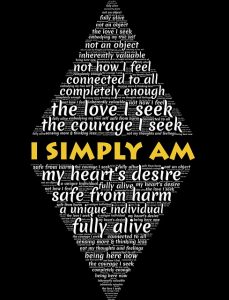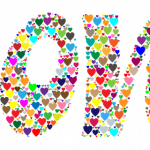Have you ever felt like a fish swimming upstream, struggling to make progress in your personal growth journey? It’s as if no matter how hard you try, there are always obstacles blocking your path.
Just like the salmon who must fight against strong currents and leap over waterfalls to reach their destination, we too must develop advanced self-awareness techniques to overcome our own challenges.
I have spent years studying and practicing various techniques that can help individuals achieve deeper levels of self-awareness and personal growth. Through my experience, I have found that it is not enough to simply be aware of ourselves on a surface level – we must dive deep into our subconscious minds to uncover hidden beliefs and patterns that may be holding us back.
In this article, I will share some of these advanced self-awareness techniques with you so that you too can break free from the current and swim towards your goals with ease.
Developing A Mindful Awareness Practice
 Developing a mindful awareness practice is an essential first step towards personal growth and self-awareness.
Developing a mindful awareness practice is an essential first step towards personal growth and self-awareness.
This practice involves paying attention to the present moment with non-judgmental awareness, which can be achieved through techniques such as mindful breathing and body scan meditation.
Mindful breathing is a simple yet powerful technique that helps you focus on your breath and clear your mind of distractions. By bringing your attention back to your breath whenever it wanders, you learn to stay in the present moment and let go of thoughts or worries about the past or future.
Over time, this practice can help reduce stress and increase feelings of calm and relaxation.
Body scan meditation is another effective way to develop mindfulness skills. In this practice, you lie down comfortably and bring your attention systematically to different parts of your body, noticing any sensations without judgment or analysis.
Through regular practice, body scan meditation can help you become more aware of physical sensations, emotions, and thoughts, allowing you to respond more skillfully to challenges in daily life without reacting automatically.
Identifying And Challenging Limiting Beliefs
As you continue to cultivate a mindful awareness practice, you may begin to notice certain patterns in your thoughts and behaviors. These patterns can be deeply rooted in unconscious biases that shape the way we perceive ourselves and others. Identifying these biases is an important step towards personal growth.
One common bias is the fear of vulnerability. We often avoid opening up or showing our true selves out of fear of judgement or rejection. However, this fear only holds us back from developing deeper connections with ourselves and those around us.
By acknowledging and overcoming this fear, we open ourselves up to new opportunities for growth and self-discovery.
To challenge limiting beliefs and overcome fears, try the following technique:
- Start by writing down any negative beliefs or thoughts about yourself.
- For each belief, ask yourself where it comes from and whether it’s based on fact or simply a perception.
- Challenge these beliefs by finding evidence that contradicts them.
By identifying unconscious biases and challenging limiting beliefs, we create space for personal growth and transformation.
Don’t let fear hold you back – embrace vulnerability as a path towards greater self-awareness and fulfillment.
Practicing Emotional Intelligence And Regulation
When we talk about emotional intelligence and regulation, it involves two important aspects: empathy and compassion. Empathy is the ability to understand someone else’s emotions from their perspective, while compassion is feeling concerned for others’ well-being.
By exploring these concepts, not only do you become more self-aware of your own emotions but also develop a deeper understanding of others’. This skill set allows you to communicate better with people, manage conflicts efficiently and build stronger relationships.
Another essential aspect of practicing emotional intelligence is assertiveness and boundary setting. Often, people confuse being assertive with being aggressive or rude. However, there is a significant difference between them.
Assertiveness means expressing yourself clearly without infringing on other people’s rights or boundaries. Setting healthy boundaries helps you protect yourself by drawing lines that define what behaviors are acceptable towards you and what isn’t. When practiced correctly, this skill set can help reduce stress levels and improve overall well-being.
In conclusion, mastering emotional intelligence skills such as empathy, compassion, assertiveness, and boundary setting takes time and effort; however, they are crucial for personal growth. I encourage everyone to explore these concepts further through meditation techniques like mindfulness practices or working with therapists who specialize in cognitive-behavioral therapy (CBT).
Remember that self-improvement begins when we start acknowledging our weaknesses rather than denying them- so be patient with yourself!
Cultivating Authenticity And Vulnerability
Have you ever felt like you’re wearing a mask when interacting with others? Like there’s a part of yourself that you hide away from the world, afraid of being judged or rejected for who you truly are?
Cultivating authenticity and vulnerability can help us let go of these masks and show up in the world as our true selves. Practicing openness is a key component to cultivating authenticity. When we open ourselves up to new experiences, ideas, and perspectives, we become more aware of who we are and what matters to us. This awareness helps us make choices that align with our values and passions, rather than simply going through the motions of life without purpose or intention.
Embracing imperfection is another important aspect of cultivating authenticity. We all have flaws and make mistakes – it’s part of being human. By acknowledging our imperfections instead of trying to hide them, we create space for growth and self-compassion. Rather than beating ourselves up over every misstep, we can learn from our mistakes and use them as opportunities for personal development.
To cultivate authenticity and vulnerability in your own life, try incorporating these practices:
1. Practice mindfulness: Pay attention to your thoughts, feelings, and physical sensations in the present moment without judgment.
2. Journaling: Write down your thoughts and reflections on a regular basis to gain insight into your inner landscape.
3. Seek out support: Connect with trusted friends or professionals who can offer guidance and encouragement along your journey.
4. Take risks: Step outside of your comfort zone by trying something new or sharing a vulnerable part of yourself with someone else.
Remember that cultivating authenticity is an ongoing process – there’s no finish line or end goal to strive towards. The beauty lies in the journey itself – embracing all the ups and downs along the way with courage and compassion for ourselves and others around us.
Integrating Self-Awareness Into Daily Life
Having learned about the importance of cultivating authenticity and vulnerability, it is time to delve deeper into how you can integrate self-awareness into your daily life.
It is not enough to simply be aware of your thoughts and emotions; you must actively work to incorporate this awareness into every aspect of your day.
One way to do this is through journaling prompts. By taking a few minutes each day to reflect on your experiences and feelings, you can gain a better understanding of yourself and what drives you. Some helpful prompts might include: ‘What am I grateful for today?’ or ‘What did I struggle with today?’
Another effective method for integrating self-awareness into your daily routine is through mindfulness exercises. This could take the form of meditation, yoga, or simply focusing on your breath for a few moments throughout the day. The goal here is not necessarily to clear your mind completely, but rather to observe your thoughts and emotions without judgment.
By consistently practicing these techniques, you will find that self-awareness becomes second nature in all areas of your life. You will learn to recognize patterns in your behavior and thought processes, leading to greater personal growth and fulfillment.
Remember: true change starts from within!
What Is The Best Advanced Self-Awareness Technique For Overcoming Procrastination?
When it comes to overcoming procrastination, there are a multitude of techniques available. However, the most effective ones tend to involve mindfulness meditation and cognitive behavioral therapy.
By deliberately focusing on the present moment through mindful breathing exercises or body scans, we can identify the underlying thoughts and emotions that contribute to our procrastination habits.
Cognitive behavioral therapy then allows us to challenge these negative thought patterns and develop more productive behaviors instead.
I highly recommend incorporating both of these practices into your daily routine for lasting personal growth and improved productivity.
Can Self-Awareness Help In Overcoming Social Anxiety?
Self-awareness is an incredible tool for overcoming social anxiety.
Mindfulness practices help you become more aware of your thoughts, emotions, and physical sensations in the present moment. By observing these experiences without judgment, you can begin to recognize patterns that trigger anxious responses and learn how to respond differently.
Cognitive restructuring techniques are also helpful because they challenge negative thinking patterns that contribute to social anxiety. With practice, you can identify distortions in your thinking and replace them with more balanced and realistic thoughts.
Together, mindfulness and cognitive restructuring create a powerful combination for developing self-awareness and overcoming social anxiety.
How Can One Use Self-Awareness To Improve Their Relationships With Others?
Improving relationships with others is like climbing a mountain without proper gear; it’s difficult and can be dangerous. However, once you equip yourself with empathy building and communication skills improvement, the journey becomes more manageable.
I believe that understanding oneself is key to fostering healthy connections with people around us. When we are aware of our own emotions, biases, and triggers, we become better equipped to handle interactions with others in a calm and thoughtful way.
Empathy-building helps us tune into other people’s feelings and perspectives while improving communication skills enables us to express ourselves clearly and listen actively. With these tools at our disposal, we can scale any interpersonal obstacles that come our way!
What Is The Connection Between Self-Awareness And Achieving Personal Goals?
To truly achieve our personal goals, we must first recognize the importance of self-reflection and mindfulness practices for increasing self-awareness.
I cannot stress enough how vital it is to understand ourselves on a deeper level before attempting to reach any objectives.
Through introspection and being present in the moment with mindful exercises, we gain clarity into our values, emotions, and behaviors that can either aid or hinder us in accomplishing what we desire.
With this heightened awareness comes the ability to make conscious choices towards our goals while also recognizing potential roadblocks that may arise along the way.
Is It Possible To Experience Negative Effects From Practicing Self-Awareness Techniques?
When it comes to self-awareness, there are both benefits and risks involved.
While practicing self-awareness techniques can lead to personal growth and a better sense of understanding oneself, it is also possible to experience negative effects such as overwhelming emotions or feeling stuck in negative thought patterns.
I recommend managing these potential risks by approaching the practice with intentionality and balance.
It’s important to not get too caught up in analyzing every aspect of your thoughts and behaviors, but rather use self-awareness as a tool for greater insight and emotional regulation.
With the right approach, the benefits of self-awareness far outweigh any potential risks.
I can confidently say that the techniques we have discussed are powerful tools for unlocking personal growth. However, it’s important to remember that there isn’t a one-size-fits-all approach when it comes to self-improvement. Each of us has different areas in which we need to develop and grow.
Self-awareness is like a flashlight that illuminates our inner world, helping us identify our strengths and weaknesses. By shining this light on our thoughts, emotions, and behaviors, we become more attuned with ourselves and better equipped to navigate life’s challenges.
But just like any tool, it must be used correctly and responsibly. Too much focus on introspection could lead to rumination or fixation on negative aspects of oneself. The key is balance – using these techniques as a way to gain insight while also remaining mindful of not getting lost in our own heads.
In summary, by implementing advanced self-awareness practices into your daily routine, you’ll find yourself becoming more confident, resilient, and compassionate towards others. As the saying goes: ‘a journey of a thousand miles begins with a single step.’
So take that first step today towards greater self-awareness – who knows where it might lead you!






